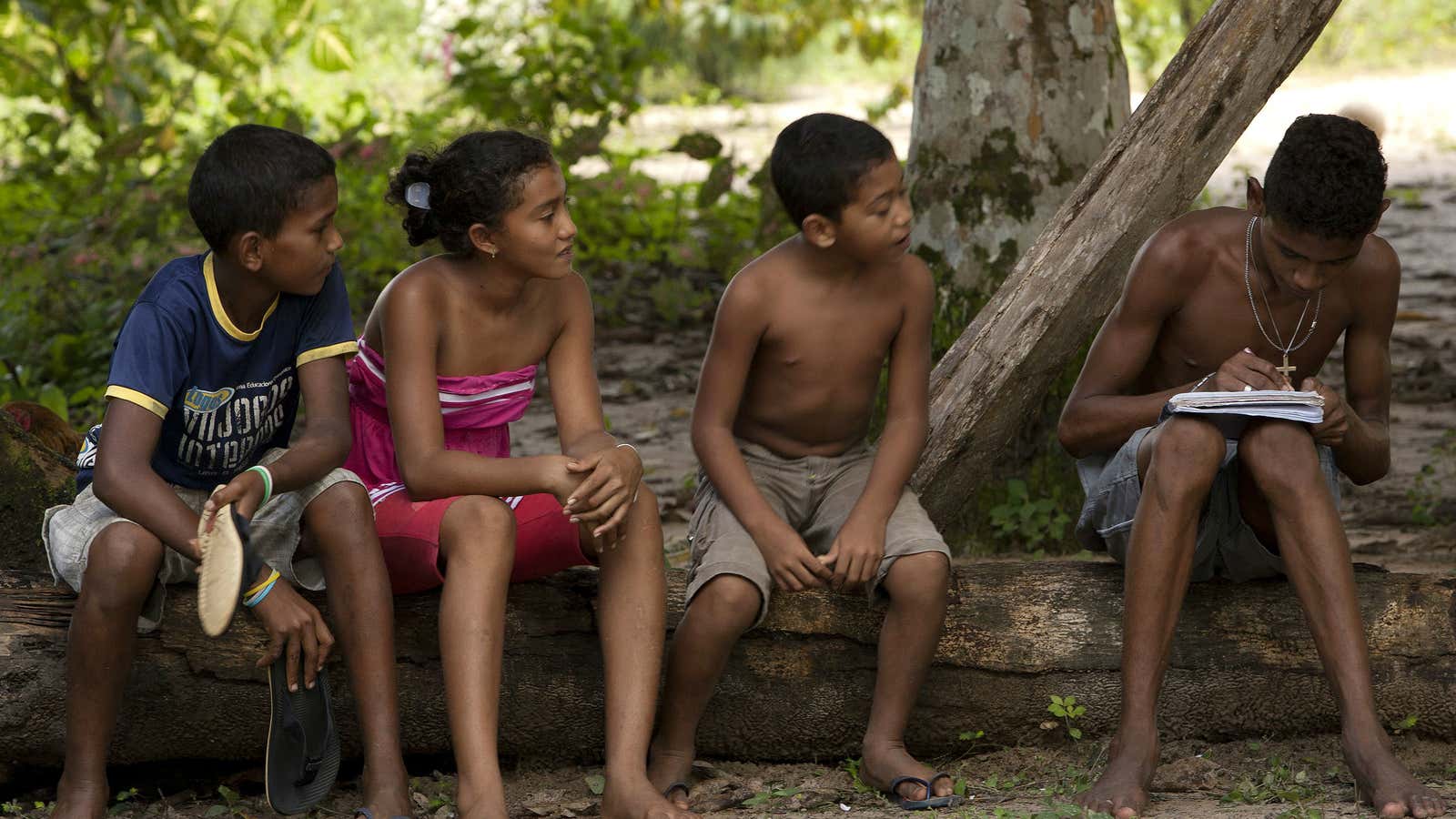The World Bank, as you might expect, is quick to draw on the knowledge of economists, policymakers, and international-development experts. But for a 2015 report on how our thinking can affect the implementation of development policies (pdf), the international institution looked beyond the usual disciplines: it asked a professor of philosophy to contribute.
The Scottish philosopher David Hume once noted that two people in a rowboat are unlikely to have arranged a contractual agreement, but will still end up rowing in sync. A huge amount of behavior is determined by not by laws, but by unspoken social norms, which has implications for international development.
So the World Bank turned to Ryan Muldoon, a philosophy professor at the University at Buffalo, New York, who tells Quartz that his work on social norms and questions of paternalism were relevant to the report.
“There are a lot of assumptions built into seemingly technocratic models developed by economists or policymakers—whether or not consciously—and philosophers are good at pulling some of that normative content out and opening it up for a discussion,” he says.
Muldoon’s work also emphasizes the importance of “mental models,” namely the characteristics associated with a particular word, such as “woman” or “honor.” The World Development Report notes subtle ways of changing mental models, such as broadcasting soap operas featuring families with few children, which has been successfully used to shift the mental model of family and reduce fertility rates.
The report is focused on nudge-style methods of changing behavior, which raises philosophical questions of paternalism, and whether it’s appropriate to subtly encourage people to think differently. For example, female genital mutilation is outlawed in most African countries, but continues to be widespread in certain areas. And so it’s necessary to consider ways of shifting social norms.
Philosophy is useful for such work, argues Muldoon, as the discipline can help draw attention to foundational questions that underlie policymakers’ theories.
Muldoon subscribes to autonomy-enhancing paternalism, a theory that philosopher David O. Brink identified in John Stuart Mill’s work. Essentially, this argues that human agency is a skill that can be developed. Certain forms of paternalism—such as requiring children to go to school—are acceptable if it enables individuals to cultivate their agency and make better choices later.
After all, Muldoon points out, those in wealthy nations tend to have a lot of institutional protection from making bad decisions. Extreme poverty can be mentally exhausting, and small changes—such as changing the timing of school-enrollment decisions so that they align with payment from harvests—simply make an important decision less of a mental drain.
Muldoon pushes back against the stereotype of a philosopher locked away in an ivory tower, pointing out that thinkers like John Locke and Hume were engaged in the political debates of the day. “Philosophers have a lot to contribute to public discussions,” he adds.
